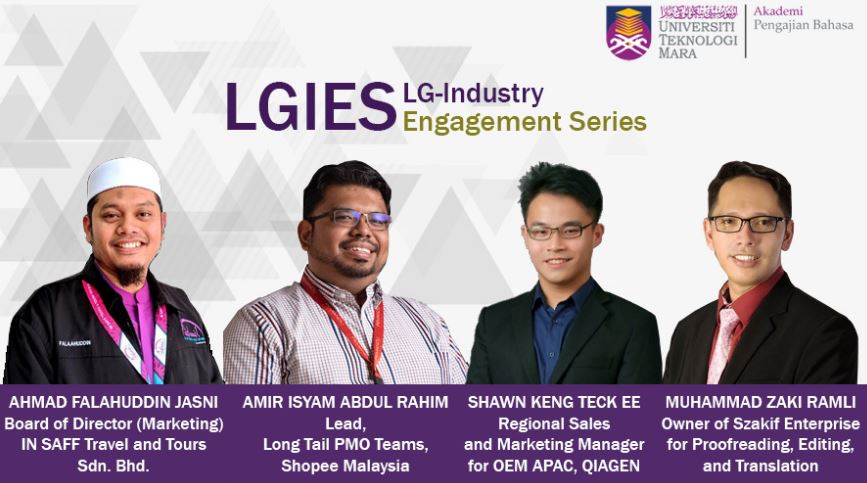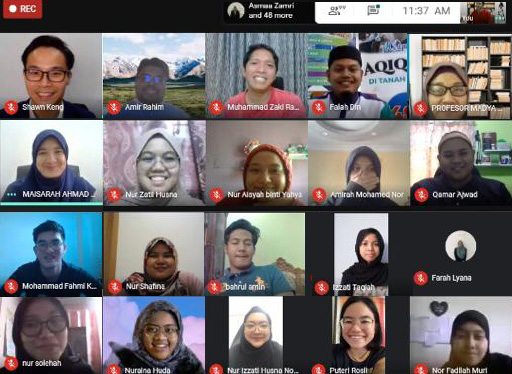Before this, it was a common practice for higher education institutions to seek industry insights to attain feedback for their current practices, whether in terms of their curriculum, the performance of their alumni, or to understand changes in the current business and industry landscape. Yet, this reactive approach, while perhaps relevant in the information age, is becoming redundant as changes now occur at unprecedented levels. We are entering the innovation age, where feedback on how well we are doing is no longer timely. Instead, crucial conversations must now be held to obtain feedforward as a means for universities to anticipate future changes and be ready to meet them. As a faculty, Akademi Pengajian Bahasa (APB) is ready to implement this paradigm shift.
One of the core initiatives of APB is to initiate regular crucial conversations with the industries in line with Universiti Teknologi MARA’s vision to establish itself as a premier university of outstanding scholarship and academic excellence. APB students, affectionately known as LG students for their language skills and expertise, are tailored to employ the use of language and professional communication into various settings such as in corporate communication, business, tourism, education, and many more. The LG-Industry Engagement Series (LG-IES) was thus designed and launched to establish platforms and opportunities for students and academics to have conversations, collaborations and partnerships with industry representatives to collectively meet current challenges and stay ahead of future challenges. Instead of relying on current research and world developments alone, decisions in APB regarding its student and curriculum development now take into account the insights garnered from business partners to meet the projected needs that will come in the future.
In November 2020, LG-IES kicked off its first forum to discuss “What is NEEDED, WANTED and DEMANDED”. Four panelists from the industry were invited to represent the fields of e-commerce, tourism, marketing, and proofreading and editing to have a moderated conversation with the LG students regarding their respective sectors, in light with the recent developments of COVID-19 and how it has temporarily and permanently affected the current business landscape. With two of the panelists also being established business owners, there were also insights given on entrepreneurship and the importance of networking to launch a new business in their respective fields.
One of the key conversations that address immediate worldwide concerns, for instance, is what students could do to increase visibility and market themselves when seeking employment considering the need to “stay at home”. The panelists shared the importance of having a clean search result when a person searches for your full name on Google, alongside tips to use such analytics to increase visibility, which is a consideration that all new graduates should take into account when applying for jobs online. Other topics that were addressed include niche areas for budding entrepreneurs, the added skills needed to target specific roles, as well as capabilities that have become obsolete.
An instrumental benefit of holding such conversations with close stakeholders, of course, is to understand the most recent market trends. Despite the pandemic, for instance, purchasing power for fast-moving consumer goods is still confirmed to be high in Malaysia, and there are also developments and opportunities that can be garnered from neighboring countries. Changes forecasted to happen in the next year, for instance, are invaluable to the APB students who will be graduating this year. Such insight not only benefits the students, but also the academics and faculty to ensure that the current curriculum is constantly fine-tuned to stay ahead of the shifts in the business and industry landscape.
The first LG-IES forum was a resounding success in bringing to light difficult topics to realistically address future challenges, yet this is what is needed moving forward. It is time we have better, more quality crucial conversations so that we are constantly prepared to meet anticipated challenges, rather than be known as only reactionary bodies of higher education.


